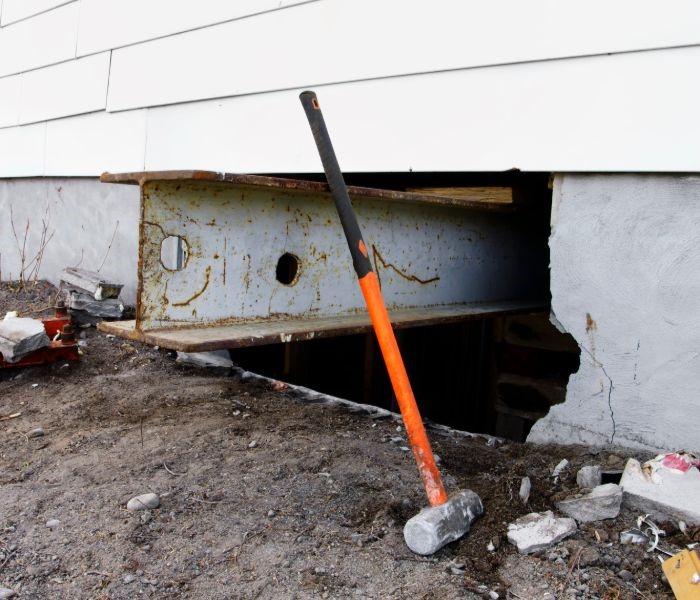Moisture problems are quite common on basement concrete floors. So, if you’ve noticed that the basement concrete floor of your home is wet, you may be wondering what could have caused it and if it’s something to worry about. Any sign of wetness on the floor of your basement can turn into a huge problem if not well handled.

Some of the signs you may see when there’s a moisture problem in your basement include deteriorating carpets, standing water on the floor, foul smell, saturated concrete basement walls, mold, etc.
In this article, we discuss why the basement concrete floor of your home is wet and what to do about it. This information is presented by our team who completes Topeka Foundation Repair.
Reasons why your basement concrete floor may be wet
If you notice any signs that your basement concrete floor is wet and you’re wondering what could have caused it, the following are some of the common causes:
Humid air from the home’s exterior
When hot moisture-rich air finds its way into your cold basement, the floor can get wet. This can happen when you open your basement windows for fresh air to come in. Moisture simply settles on your basement floors and walls when warm, humid air condenses in your basement.
Water leaks in the home
When trying to find out why your basement concrete floor is wet, you may want to look out for water leaks. Check out the toilets, sinks, showers, washing machine, dishwasher, and any faulty pipes. Some leaks may not be easy to find and you may need the help of a professional.
Groundwater seeping into the home
Your basement floor can be significantly impacted by wetness due to heavy downpours, especially if the ground was poorly graded in the first place. Also, water from the roof can also find its way into the basement of the building if the gutters are limited.
Foundation cracks
Cracks on the foundation are a major cause of wetness on your basement concrete floor as water can easily seep in through these cracks. So, if your basement floor is damp, your foundation may need to be inspected for any cracks.
Poor grading
Improper grading can make it easy for groundwater or rain to find its way into the floor of the basement. Ideally, water should be directed off from the home. However, poor grading can make the water drain back and seep into different parts of the structure, including the basement floor. With time, the basement floor becomes wet.
How to fix moisture problem in your basement concrete floor
There are many possible solutions to fixing wet basement concrete floors. The best methods for you will depend on the cause of the problem. So, it would be best to consult a professional for recommendations.
Settlement crack repairs
This is an effective way to prevent moisture from seeping into your basement concrete floor. In this process, the cracks are fixed using some materials and flooring tools such as patching cement, mallet, putty knife, and cold chisel. While some homeowners attempt to do this themselves, there’s always the risk of not repairing the settlement cracks properly due to a lack of skill and experience. It’s always best to leave the job to professionals.
Using dryer ventilation
An inadequately ventilated dryer can increase moisture in the air. With time, this moisture settles on the floor. This causes the accumulation of moisture on the basement floor, making it wet, and oozing a musty odor. So, ensure that the dryer is well ventilated and chances of wet basement concrete floor will be reduced.
Regularly running your dehumidifier
Dehumidifiers are great at significantly reducing the humidity levels in the room. So, if you run your dehumidifier regularly, the condensation of the humidity in the room is minimized. With this method, the chances of water problems in your basement are reduced.
Minimizing condensation
One of the things that can contribute to a high level of condensation in your basement is water pipes. When there is frequent condensation in the basement, the floor becomes damp, and with time, the floor becomes a breeding ground for the growth of mold and mildew. An effective solution to this is to use insulation foam to wrap the pipes. With this, the moisture on your basement floor is reduced.
Doing proper grading
Since improper grading can cause groundwater to seep into the basement floors, a common solution is to accumulate dirt around your foundation. This will create a sloppy ground for water to be redirected away from the structure. Again, a professional foundation repair should help with this.
Final thoughts
The best way to go about solving the moisture problem on your basement concrete floor is to engage the service of a reputable foundation repair professional. They will inspect your home and recommend the best solution to go for. Check out Angie’s list of reputable basement repair contractors.
